Remedy Entertainment has held a keynote presentation for investors, outlining its long-term business strategy for 2025-2030. Here are the key takeaways regarding the studio’s financial goals and game development pipeline.
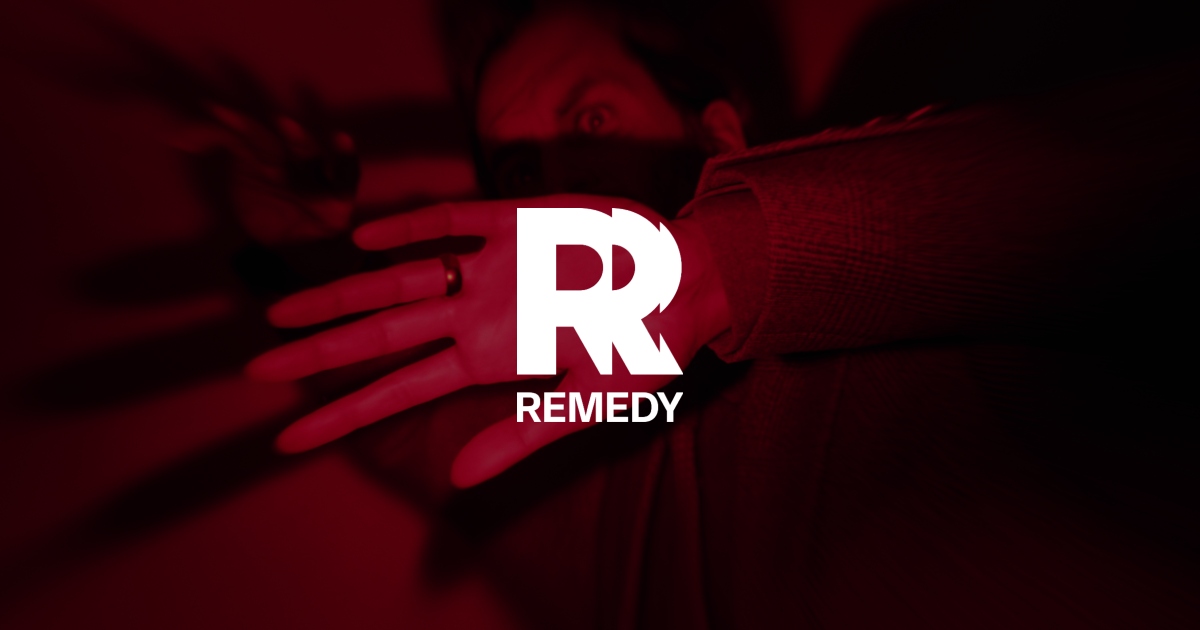
Alan Wake 2
Remedy Entertainmnet’s financial targets
- During the Capital Markets Day, Remedy CEO Tero Virtala announced that the company is entering an era of sustainable, profitable growth.
- The goal is to turn Remedy from a studio with occasional commercial success to a company with sustainable and significant commercial success.
- Another goal is to grow Control and Alan Wake “from great games into world-class franchises.”
- By 2024, Remedy plans to double its revenue generated in 2024. Another financial objective is to reach an EBITDA margin of 30% and maintain that minimum level for the next three years.
- In the first three quarters of 2024, Remedy reached an EBITDA of €3.1 million, with an operating profit (EBIT) margin of -7.4% — a significant improvement from -67.1% in the same period last year, but the company has a lot of work to do to achieve the new ambitious target.
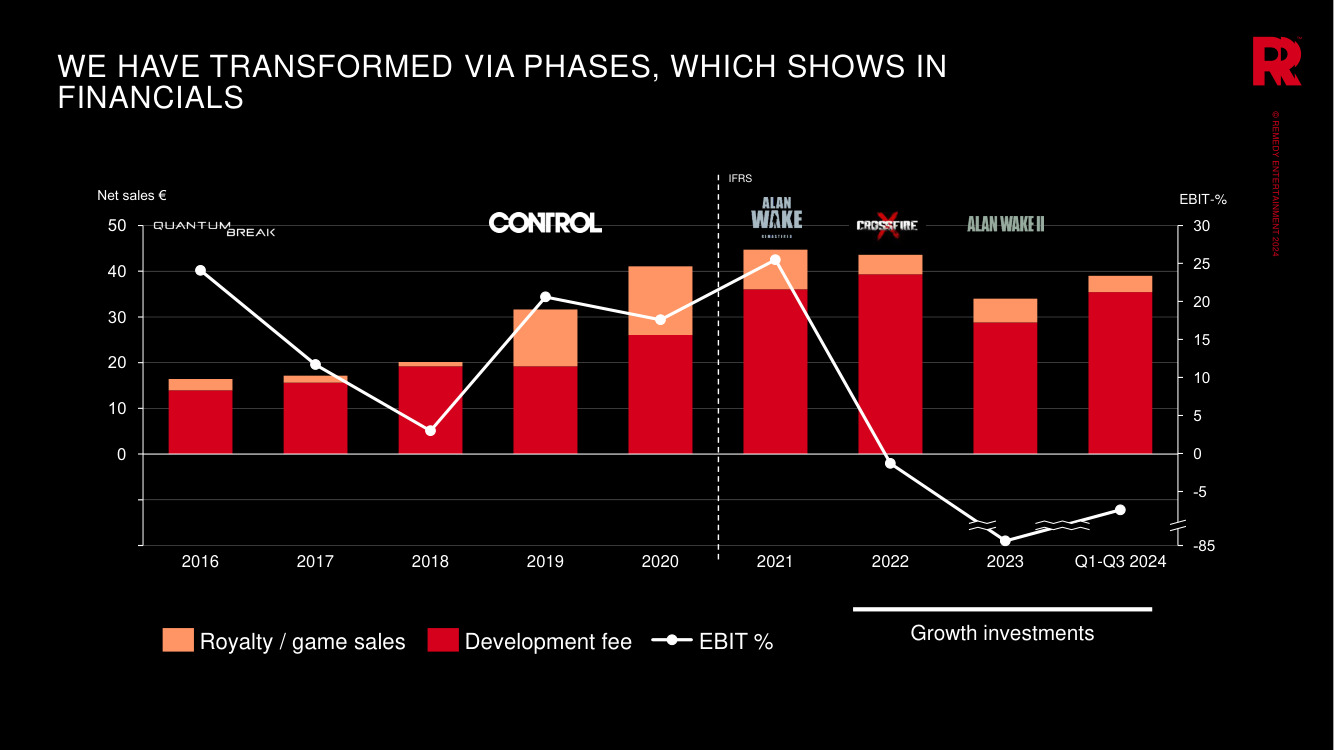
- As of October 31, Remedy employed 365 people spread across two studios, one in Espoo, Finland, and one in Stockholm, Sweden. With more than 250 external developers, the company now has four departments.
- The studio noted that its current organization is on a correct level and it doesn’t see a need to increase it.
How does Remedy plans to executive its growth strategy?
- As Remedy announced in its latest financial report, it plans to self-publish all of its own games going forward. This will allow the studio to receive 100% of net revenue from sales of its products without having to wait for the project to recoup the investment made by the publisher or other partner.
- With its new strategy, Remedy sets an ambitious target of reaching at least 100% ROI for each new game in its pipeline. To support this goal, the company started conducting systematic market research and audience testing, providing creative teams with valuable and relevant data.
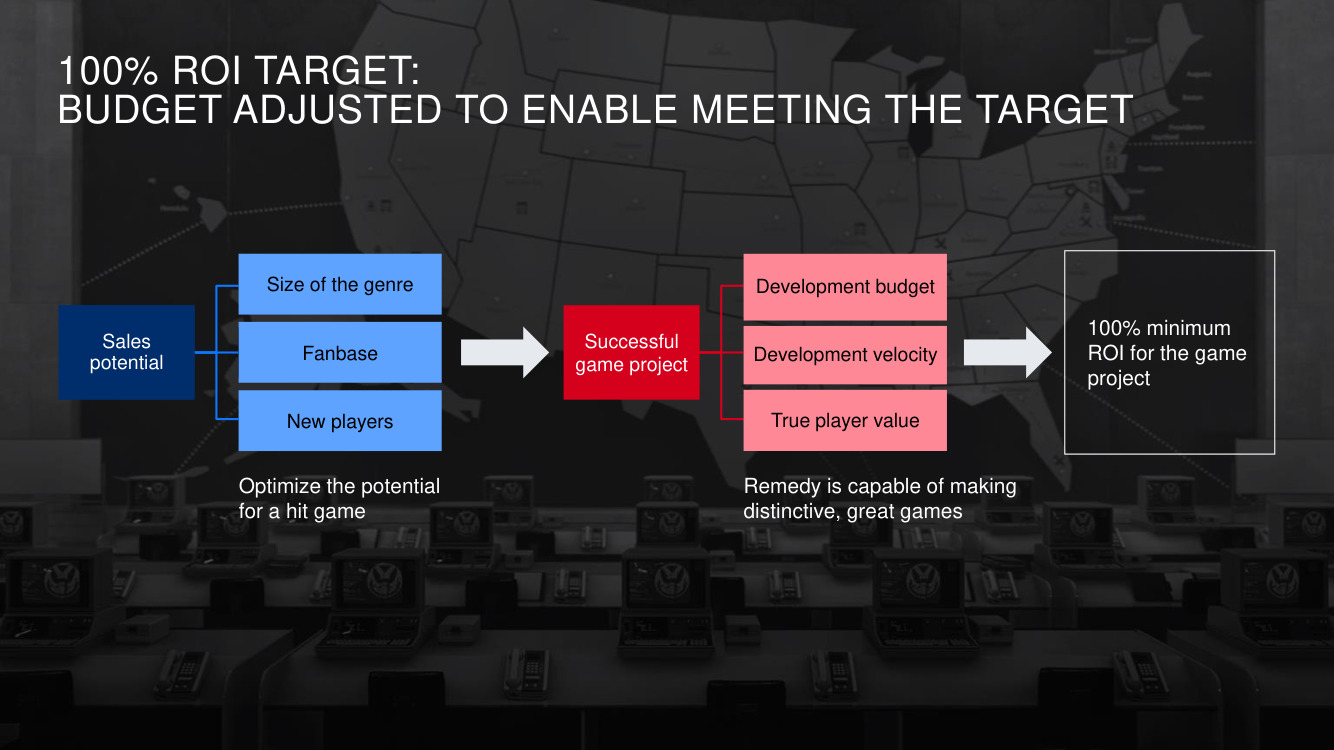
- The company used FBC: Firebreak as an example to illustrate how the self-publishing model could strengthen its financial position. If the game generates €100 million in revenue, Remedy will end up with a €30 million profit (75%) after platform fees and cost recognition.
- Doubling its sales to €200 million would give the studio a profit of €100 million (250% ROI) — compared to €50 million (167% ROI) if the same project had been made with a publisher.
- Reaching €200 million in revenue for a €30 million game would also allow Remedy to achieve an EBITDA margin of more than 45%.
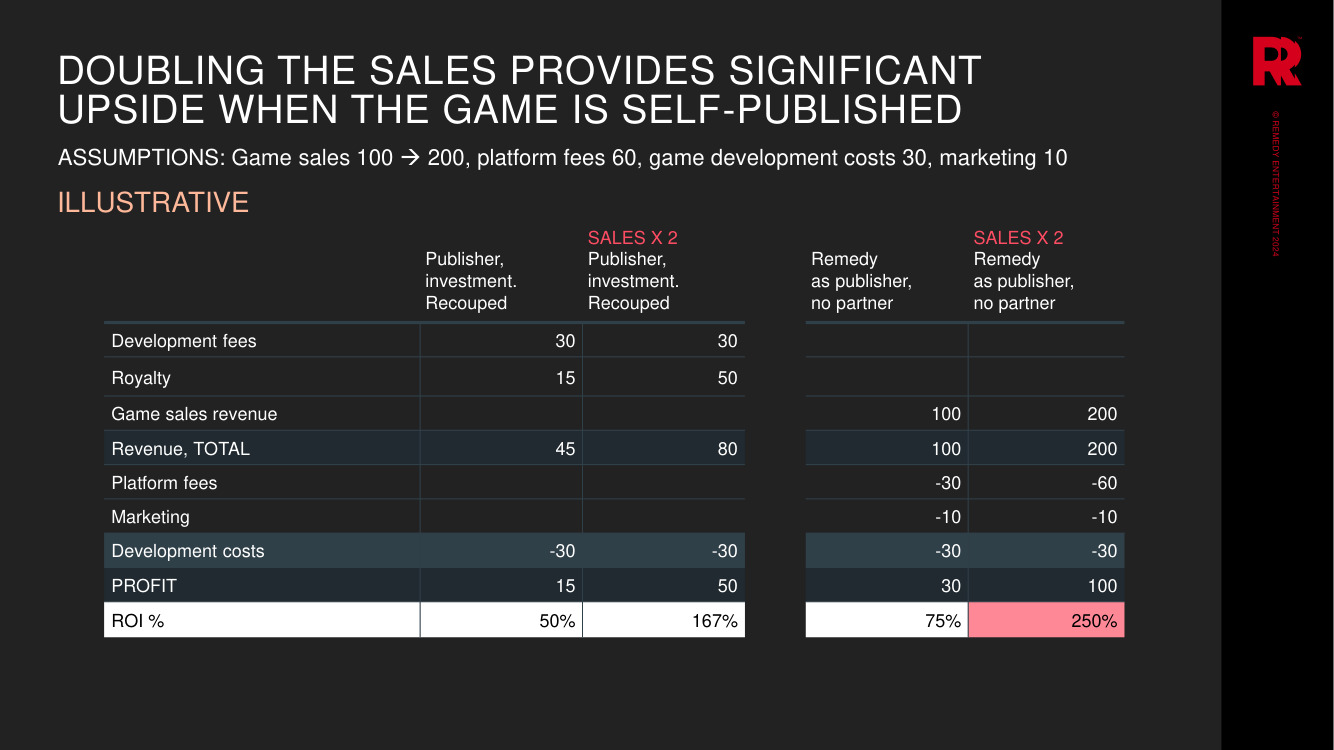
- As part of its growth strategy, Remedy plans to create single-player and multiplayer premium games in various genres. Core players on consoles and PC remain its target audience.
- “The highly important principle for all our teams is smart creativity,” Virtala stated. “It means we need to balance creativity, production, technology, and business.”
- For example, using its proprietary Northlight engine, whose team includes around 60 people, allows the studio to share technology, tools, assets, and know-how between different projects.
- Another important pillar of this strategy is to operate with managed budgets to succeed in the specific niche. The goal is to create successful games for different audiences, produce AAA sequels, scale own IPs with spin-off projects, and then expand them into film, animation, and other mediums.
- Since the launch of Quantum Break, the Finnish studio has expanded its in-house publishing capabilities, including community outreach, influencer marketing, paid media advertising, and sales promotions.
- However, Remedy still plans to work with other companies to market and distribute its games, while also partnering with production companies and brand agencies to expand their franchises into other mediums.
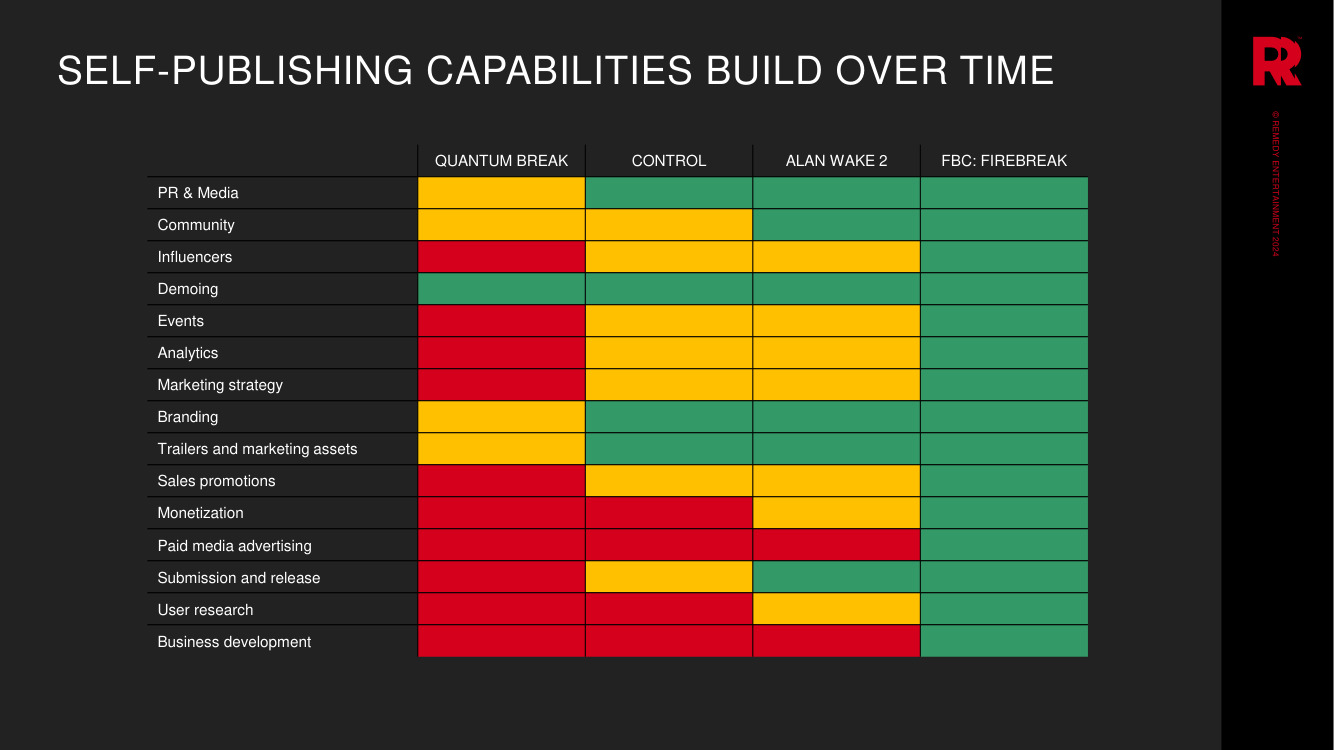
Game sales and production pipeline
- The Alan Wake franchise has 15 million players. AW Remastered sold 1.7 million units, while Alan Wake 2 surpassed 1.8 million copies sold. It’s still not enough to recoup the sequel’s development costs, but Remedy has high hopes for its long-term potential.
- It is worth noting that Epic Games fully funded Alan Wake 2, and the Finnish studio will be entitled to 50% of net revenue only after it recoups its investment. Remedy still thinks that partnering with Epic was the right choice because it wouldn’t have made the game without this financial support.
- “Every game that we make, especially with this quality level, should be profitable faster,” Virtala told investors during a Q&A session. “At the same time, the sales of Alan Wake 2 have actually been quite well in line with our original estimates. A few years back, our productions didn’t yet work as well as they do today, and we ended up overinvesting into the game, and therefore the budget has been higher.”
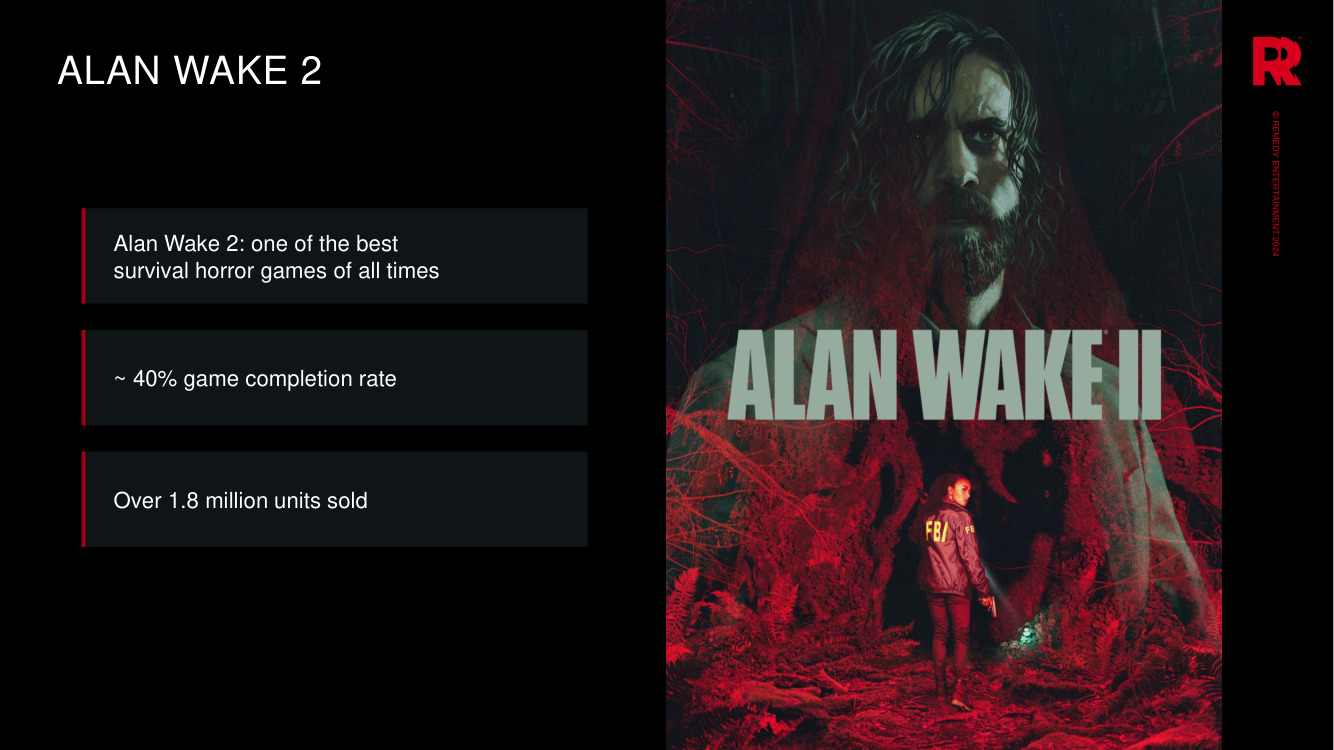
- As Remedy revealed earlier this year, Control has been played by more than 19 million users. In its new business presentation, the studio announced that the game has now sold 4.5 million units globally.
- Control 2, positioned as a AAA action RPG, is currently in the production readiness stage. With the development budget of €50 million (Annapurna Pictures will fund 50% of it), Remedy needs to sell 3-4 million copies to reach a 100% ROI for the game.
- FBC: Firebreak, a PvE shooter set in the Control universe and expected to launch in 2025, has a budget of €30 million. According to the studio’s estimates, the game will reach a 100% ROI after selling 3 million units.
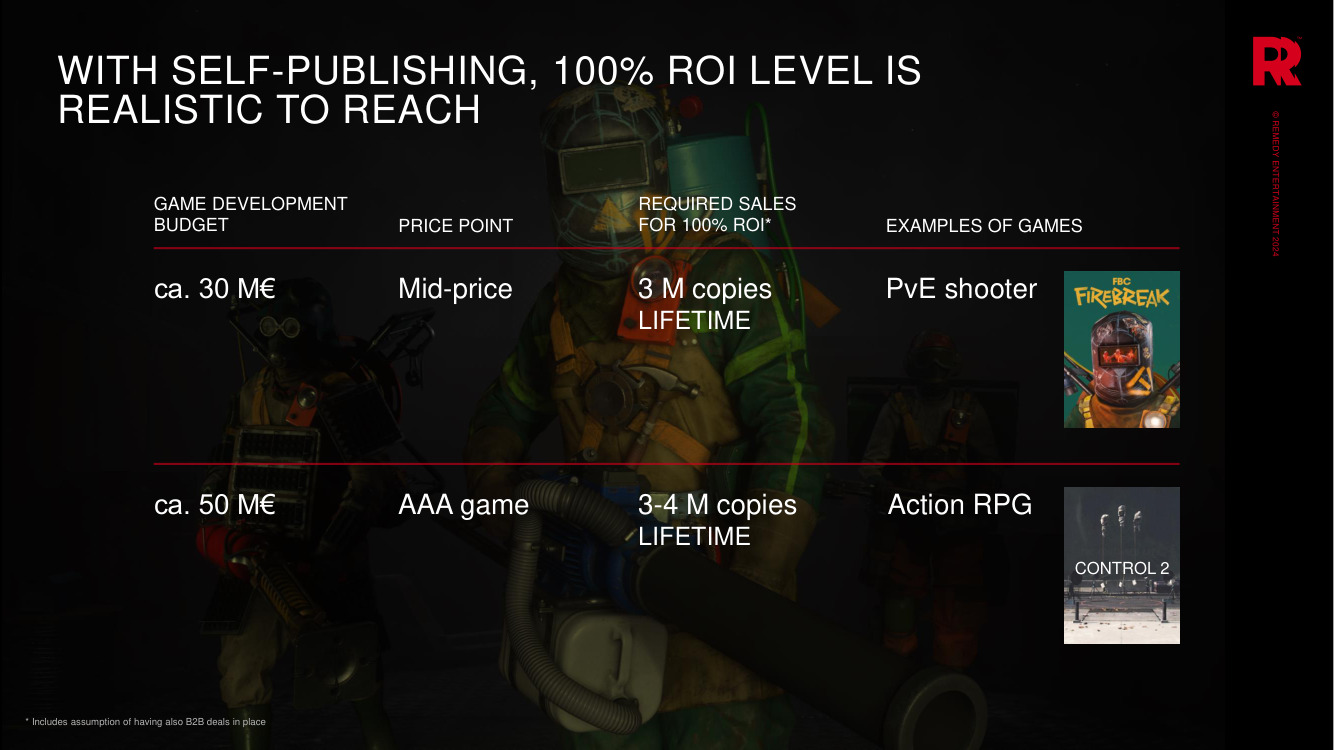
- Remedy didn’t reveal any estimated figures for the Max Payne 1&2 remake, which is currently in full production. The game is being funded and published by Rockstar.
- The studio also has a fourth project in its pipeline, but there are no details about it at the moment.
